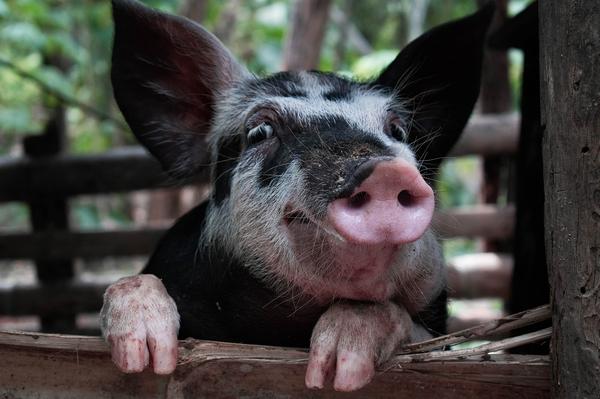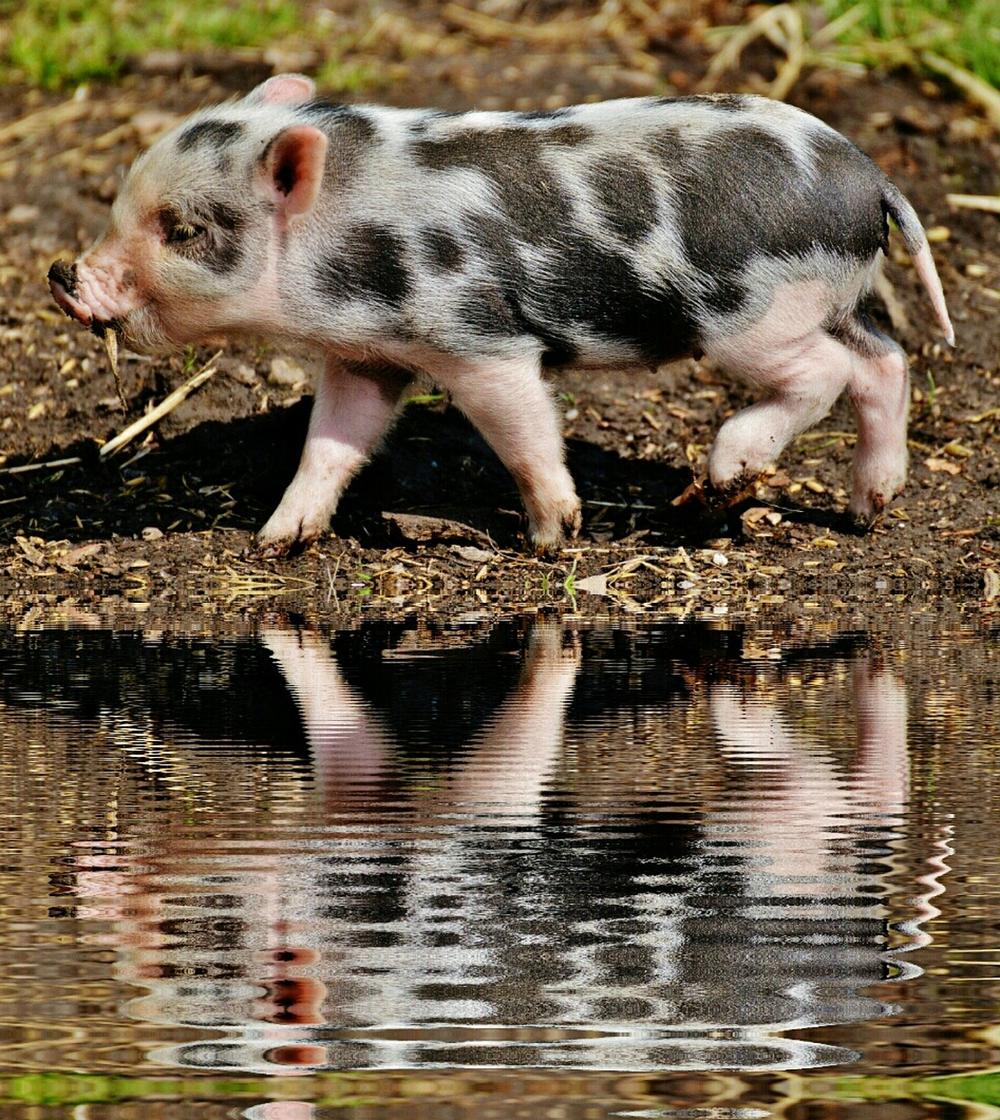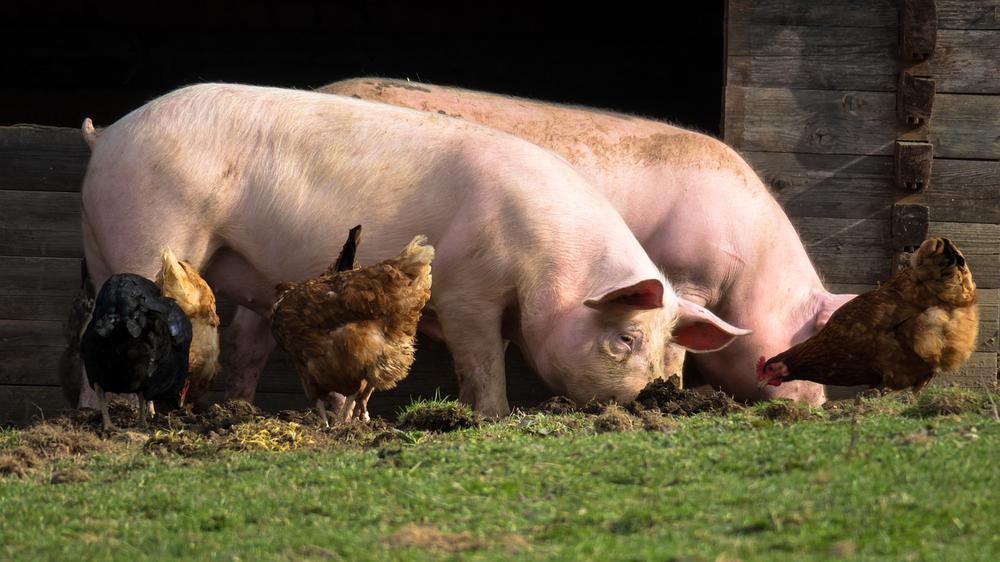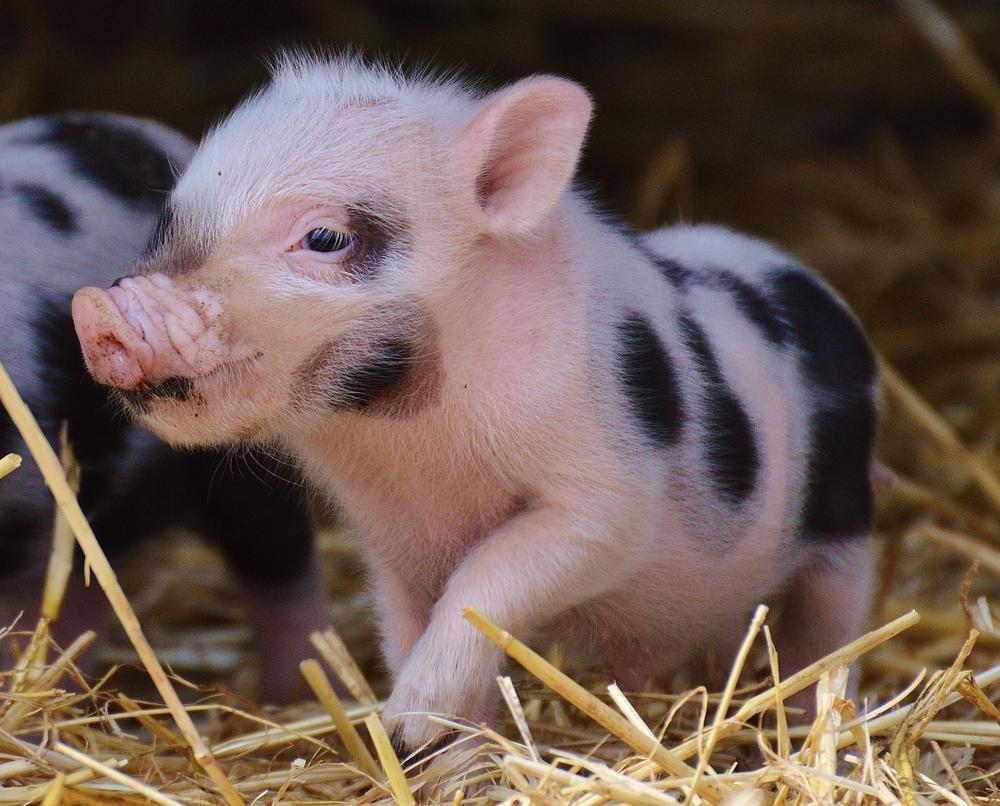How to Rehydrate Your Pig? Everything You Need to Know

Here's the truth:
Your beloved pig is more dehydrated than a raisin left in the sun. 😫
Just imagine your poor piggy, feeling like a desert cactus, all thirsty and miserable.
It's a nightmare no pig enthusiast wants to face.
But hold your horses, because I've got the solution in this Pig Enthusiast guide.
We're gonna rehydrate your pig and put a smile back on its adorable snout.
Let's get to it, cowboy.
Importance of Proper Hydration in Pigs
Pigs need water to stay healthy, so you should keep them hydrated.
If they don't get enough water, they can become dehydrated, which is bad news for their well-being.

To help you understand why pig hydration matters, here are a few important things to remember:
- When pigs are dehydrated, they eat less food. This means they won't gain weight and grow properly. So, water consumption affects their appetite and feed intake.
- Sodium is really important for pigs because it helps maintain fluid balance in their bodies. It also keeps their cells, nerves, and muscles working properly. Make sure the water your pigs drink has enough sodium.
- Pigs drink more water when it's hot or humid outside. So, if the weather is scorching, make sure you provide plenty of clean and cool water sources to prevent them from getting too hot and thirsty.
- The quality of the water your pigs drink matters a lot. If the water is contaminated with bacteria, parasites, or toxins, it can make them sick. Test your water regularly to ensure it's clean and safe for your pigs to drink.
- Keep an eye out for signs of dehydration in your pigs. If they're producing less urine, have dry skin, sunken eyes, or look tired and slow, they might be dehydrated. Take immediate action to rehydrate them by giving them more water.
It's not just about keeping the pigs happy and healthy.
Proper hydration also maximizes productivity and profitability in pig farming.
So, take care of your pigs' water needs, and everyone wins.
Main points I'll expand upon further down this article:
- Early detection of dehydration symptoms is crucial - look for changes in behavior and loss of interest in food.
- Water deprivation, diseases, and stressors contribute to pig dehydration.
- Water intake for pigs varies based on age and size.
- Gradually increase water intake and add electrolytes to rehydrate pigs.
- Reintroduce water slowly to prevent shock to the pig's system.
- Glucose water can be added to electrolyte formulas for rehydration.
- Avoid Gatorade with artificial sweeteners, use natural fruit juices instead.
- Oral rehydration solutions with glucose, electrolytes, and an alkalizing compound are effective for mild to moderate dehydration.
- Keep surroundings and food/water bowls clean to prevent diseases.
- Consider alternative rehydration methods for severe cases and use SupraPlus© for digestive health and hydration.
But what signs should you be looking for to identify dehydration in your pigs?
I've got you covered with some specific indications that will help you recognize when your pigs are experiencing a lack of proper hydration...
Signs of Dehydration in Pigs
Pigs getting dehydrated is a real problem and can mess with their health.
Watch out for when your pig starts panting a lot or breathing with their mouth open.
This is usually a big sign that they're dehydrated.
But there are some other signs you should know about too:
- When your pig's nose or gums feel dry, that might mean they're dehydrated.
- If their eyes look kind of sunken or dull, it's probably because they're dehydrated.
- Dehydrated pigs often seem lazy and not interested in doing anything.
- Squeeze the skin on their back gently. If it doesn't go back to normal quickly, it's a sign of dehydration.
It's really vital to spot dehydration as soon as possible.
Pay attention if your pig's behavior changes or if they lose interest in food.
Taking action fast can keep your pig from having serious health problems.
But how exactly does dehydration happen in pigs?
Why is it important to keep an eye on factors like intense physical activity, high ambient temperatures, diseases, and stressors?
In this next section, I'll dive deeper into the causes of dehydration in pigs, shedding light on why you need to be vigilant in ensuring their hydration levels stay optimal.
So let's explore the key factors that can lead to dehydration in our porcine pals!
Common Causes of Dehydration in Pigs
Dehydration in pigs can have various causes, and you should be aware of them to prevent this condition.

Here are some common factors that contribute to dehydration in pigs:
- Intense physical activity or exposure to high ambient temperatures can result in rapid water loss through sweating.
- Water deprivation is a common cause of dehydration in pigs. Just like humans, pigs rely on water for their in essence health and well-being.
- Diseases can also play a role in pig dehydration. Illnesses such as diarrhea can lead to significant fluid loss and electrolyte imbalances if not properly managed.
- Stressors can affect pig hydration levels. Stress can disrupt normal bodily functions and lead to decreased water intake.
- Improper reabsorption of sodium-rich intestinal secretions due to diarrhea can further exacerbate dehydration in pigs.
Monitoring these factors and taking proactive steps to ensure your pig has access to clean, fresh water at all times is crucial.
By staying vigilant and implementing proper hydration strategies, you can help keep your pig healthy and hydrated. 😊
But how do you ensure that your pig is getting enough water?
Well, let me tell you the crucial details about water intake requirements for pigs, so you can be sure to keep your pig hydrated and healthy!
How Much Water Do Pigs Need?
Water is vital for pigs.
They need it like they need air.
How much water a pig needs depends on its age, size, and weight.
On average, an adult pig drinks around 24 liters of water for every kilogram it weighs per day.
Rehydration Techniques for Pigs
Gradually increase the pig's water supply so its sensitive digestive system doesn't get overwhelmed.
When rehydrating pigs, you ought to remember that slowly increasing their water intake is key.
You don't want to give them too much water all at once and upset their delicate digestion.
Start with small amounts and gradually offer more over time.
Make rehydration even better by adding electrolytes to the pig's water.
To really boost the rehydration process, you can include electrolytes in the pig's water.
These essential minerals like sodium, potassium, chloride, and bicarbonate help replenish the pig's body and restore hydration levels.
By doing this, you're ensuring optimal rehydration for your pig.
Use oral rehydration therapy for mild to moderate dehydration in pigs.
If your pig is experiencing mild to moderate dehydration, oral rehydration therapy is a great option. This technique works on the principle that sodium needs glucose to be absorbed into the bloodstream.

So, effective rehydration solutions should contain glucose, electrolytes, a compound that aids electrolyte uptake, and an alkalizing agent.
It's highly beneficial for issues like diarrhea, weaning, or heat stress in pigs.
These solutions provide the necessary fluids and nutrients to rehydrate effectively and recover from dehydration.
Just make sure that you avoid using Gatorade with artificial sweeteners and instead opt for natural fruit juices.
Now that you know these rehydration techniques, you can ensure your pig stays hydrated and healthy!
As you focus on rehydrating your pigs and keeping their sensitive digestive systems in check, it's important to consider their overall well-being.
If you're also interested in effective methods for disciplining your mini pig and addressing behavioral issues, I recommend checking out my informative blog post on How to Discipline a Mini Pig.
Tips for Encouraging Water Intake in Pigs
To ensure your pigs stay hydrated, here are ten tips that will help:
- Keep their water sources clean and easy to get to.
- Make sure there's always water available for them.
- Regularly clean their food and water bowls so no gross stuff builds up.
- Keep the area around them clean too, so they don't get sick.
- Give them fresh water every day so they can stay hydrated.
- Pay attention to the water temperature - pigs like it cool.
- Use automatic waterers for convenience and to keep things clean.
- Add some flavoring to the water to make them more likely to drink it.
- Consider adding a product called SupraPlus© to their drinking water.
- Trying giving them wet feed or soaked pellets - it'll help them drink more.
Your pigs will stay well-hydrated and in good health if you adhere to these concepts.
Water is super important for their in essence well-being and digestion.
So try out these strategies and keep your pigs happy and thriving.
Rehydration Methods for Sick or Injured Pigs
If you've got a sick pig that needs some fluids in them, here are 8 things you can try:
- First things first, reach out to a vet right away.
- In really bad cases, they might need to use an IV to get the fluids in.
- If there's no diarrhea going on, they could give it to them through the back door.
- Another way is by using a stomach tube to pump it in.
- If things are extra serious, they might even have to put it right into their belly.
- SupraPlus© can be helpful for baby pigs during their first week to get hydrated.
- It's also good for dealing with the heat and bouncing back from it.
- And hey, if they've got any tummy troubles, SupraPlus© can help with that too.
Getting a vet involved ASAP is crucial when your pig friend is just all dried up from being sick. 😷
Preventing Dehydration in Piglets

How can you ensure your piglets don't get dehydrated?
Here's what you need to do:
- Keep the temperature regulated in their housing area by using ventilation systems, cooling pads, and fans.
- Before any stressful events like weaning or transportation, give the piglets electrolytes to help keep them healthy.
- Make sure they receive all their necessary vaccinations to protect them from diseases.
- Because piglets have high metabolic rates and low body weight, they're more prone to dehydration, so keeping them properly hydrated is crucial.
- A piglet's body is made up of about 50% water on average, and young and lean piglets can have as much as 70% water content.
- ActiPlus© is a liquid emulsion product specifically designed for young mammals, including piglets, that can help maintain hydration during lactation.
- You must monitor and manage the piglets' water intake, so ensure they always have clean and fresh water available.
Prevention is better than cure when it comes to piglet dehydration. Follow these steps to keep your piglets healthy and hydrated!
And that's all for today folks.
You made it to the end of my blog post, so let me ask you something - did you enjoy reading it? I dedicated a great amount of time and effort into creating comprehensive and helpful blog posts that I hope you find valuable. Because of this, I would sincerely appreciate it if you could take a moment to click on any of the social sharing icons to share this blog post with others. Your support means a lot to me. Thank you in advance!
Until next time,
-Chris Campbell